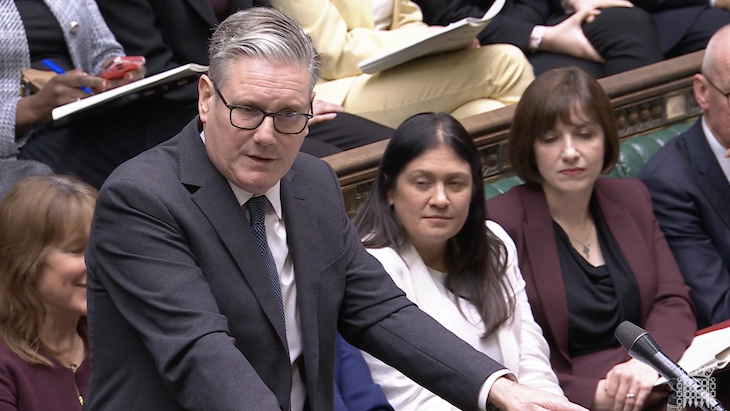Being a woman walking on the street at night, especially on your own, is still scary. No matter that we live in an age of progressiveness and equal rights, of post #MeToo vigilance: the threat of violence by men against women under cover of darkness remains elemental and real.
Lights on a quiet street are essential to mitigating this, and that includes in the middle of the night, when women are likely to need such illumination most; when, possibly after a party, they are more vulnerable; drunk, tired, or just very much alone. It’s when there is least likely to be anyone around to hear you scream. With no police presence on the streets, decent lights often feel like our only protection.
Women’s safety is simply too low down in the pecking order of ‘marginalised’ experiences
Lambeth Council, one of the most dismally self-regarding, full to bursting with its progressive diversity and inclusion and climate agenda, does not agree. It pays a ‘director of climate and inclusive growth’ £160,000 and has spent more than £25 million on climate and ‘active travel’ initiatives (walking and cycling) since 2019.
But now the Labour-run council, whose debts stand at £1 billion, has decided to cut costs by dimming its street lights. This creates the distinct sense that women’s safety (cis-gendered lady-people, that is) is something that can be dispensed with; certainly something that comes after ‘inclusive growth’.
The mind boggles. Lambeth is one of the most dangerous boroughs of London – its crime rates are 27 per cent higher than the London average. It has the highest rates of robbery in the city. According to CrimeRate, the most common offences in Lambeth are violence and sexual offences. Perhaps not the ideal place to dispense with street lighting then.
But once again, in the race to peacock the biggest plume of social justice commitment feathers, women are trodden underfoot. What are women, anyway? Perhaps they’re just people who say they are women, or who fancy being a woman on the day, as per the trans ideology that forms a key part of the ‘inclusivity’ edifice to which Lambeth subscribes. Perhaps the matter of their physical safety has started to seem more theoretical than pressing.
Whatever the reason, Lambeth’s excuses reflect horribly muddled thinking. They say the cuts would come in ‘mostly during the middle of the night’ cuts; they blame ‘years of austerity’.
It is in a certain sort of parodied Labour fashion to whine about austerity, while spending millions on nonsense. Which is how an unhinged fixation with the green agenda led Lambeth into the odd position of actually defending the street light decision by saying it would ‘allow the council to strengthen its environmental record by tackling light pollution and energy use, whilst ensuring our streets and green spaces remain safe’.
There is no ‘whilst’ about it; the latter has clearly been sacrificed at the expense of the former. It’s not just individual women who are horrified by these measures. Our Streets Now and the Suzy Lamplugh Trust, which campaign against stalking and street harassment, have expressed urgent concerns.
Lambeth is a case study in how the epistemological crisis brought on by DEI ideology directly impacts women. It boasts (and pays for) a bevvy of ‘free, trans-inclusive socials’. It has commissioned expensive surveys into the trans demographic of Lambeth, and the transphobia that demographic may encounter.
But as soon as an obvious, glaring issue of women’s safety crops up, there is blindness, indifference, and obvious moral confusion. Women’s safety, women’s sense of fear rooted in real danger on unlit Lambeth streets in the middle of the night, is simply too low down in the pecking order of ‘marginalised’ experiences. It is too real. It doesn’t fit with the made-up but more voguish world of men being women if they say so, of the climate ‘crisis’ and buzzwords like ‘inclusivity’.
This council would rather spend, and save, its many millions on the sort of things (cutting bin collection from weekly to fortnightly on one hand and severely policing extreme low traffic neighbourhoods on the other) that would have been seen as plain barking mad just 20 years ago.
If women want to feel safe – and yes, even in the middle of the night – then they’ll have to either avoid Lambeth or stop going out late.








Comments